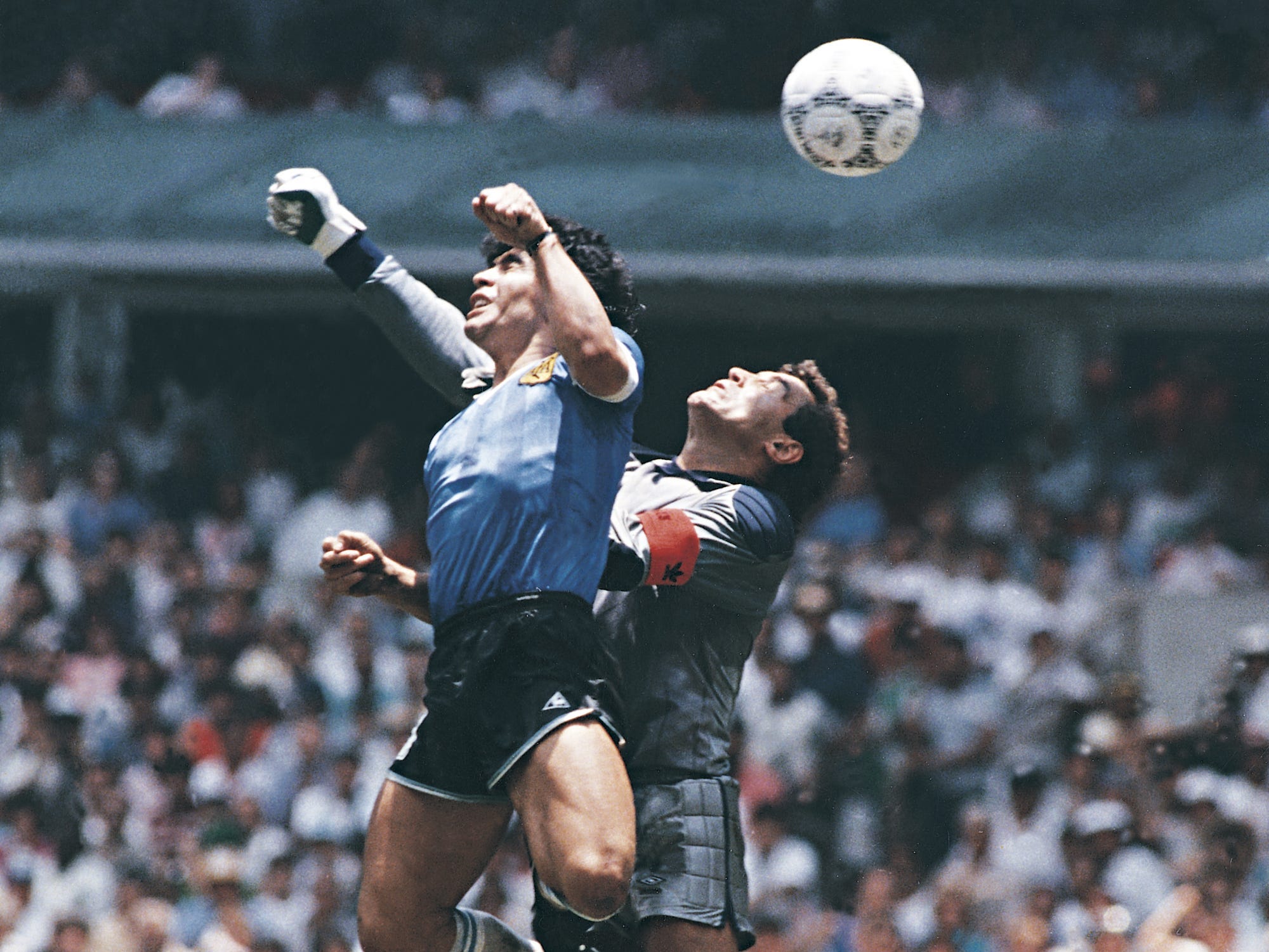
Getty/El Grafico
- Diego Maradona’s career defining performance against England at the 1986 World Cup was a symbolic revenge for the Falklands War and made him cultural icon in Argentina.
- Maradona scored twice against England in the tournament’s quarterfinal, the first of which was with his hand and the second which was later voted as the “Goal of the Century.”
- “When he scored that first goal, just sticking out his hand and getting away with it, that was like sending a message to his compatriots saying ‘We’re smarter than the British,’ South American football expert Tom Vickery said.
- “And the second goal,” he added. “Well that’s saying, ‘We’re better than the English.'”
- Visit Insider’s homepage for more stories.
Diego Maradona’s career defining performance against England at the 1986 World Cup was a symbolic revenge for the Falklands and made him cultural icon in Argentina.
That’s according to Asif Kapadia, the director of the BAFTA nominated 2019 documentary about the Argentine’s spell at Napoli between 1894 to 1991.
Maradona, who died of from a cardiac arrest aged 60 on Wednesday, scored twice in a 2-1 against England in the 1986 World Cup quarterfinal.
The first of his goals was scored by a deliberate hand ball, which would later become known as the “Hand of God.” His second, which was voted as “Goal of the Century” in 2002, was a mazy, 60-yard run which saw him dribble past five England players before rounding the goalkeeper and slotting home.
Argentina would go on to win the competition.
Just four years prior, Argentina and the United Kingdom went to war over the sovereignty of the Falkland Islands, a small island chain off Argentina's coast in the South Atlantic Ocean.
Argentina surrendered to the UK after ten weeks of conflict, with 649 Argentine military personnel and 255 British service people dying.
"The guy is the greatest," Kapadia told Channel 4 News. "He's a footballer, his job is to score goals.
"And if you can win a match against a football team who humiliated you in a war four years earlier, and do it by being the best player in the world and scoring essentially the goal ever scored in a World Cup, and scoring one with your hand and getting away with it..." he added.
"It's a measure of who he was, the two sides of the genius and the cheat, but also it just showed the importance of him culturally to Argentina."
—asifkapadia (@asifkapadia) November 25, 2020
South American football expert Tim Vickery concurs with Kapadia, saying the match transformed him into a "god" in his home country.
"It's that game against England that is the defining moments of his life," Vickery told Sky Sports.
"And that's to do with the fact it was England, and that goes way, way deeper than the war between the country four years earlier.
"Argentina was an informal part of the British Empire, and one of the defence mechanisms you have if you're on the wrong end of that kind of relationship, is that England, you know might have the formal power, but we're smarter, we can can run rings around them.
"When he scored that first goal, just sticking out his hand and getting away with it, that was like sending a message to his compatriots saying 'We're smarter than the British.'
"And then the second goal, the extraordinary second goal, when he picks up the ball in his own half and on a pitch that was like a ploughed field, manages to pick to the ball up and dribble and take out the entire English defence, well that's saying, 'We're better than the English.'
"He was living out a national fantasy when he scored those two goals against England, and it is the day when Argentina decided that he wasn't a mere mortal, he was a God."
Read more:
Diego Maradona, one of the greatest stars in soccer history, has died at the age of 60
